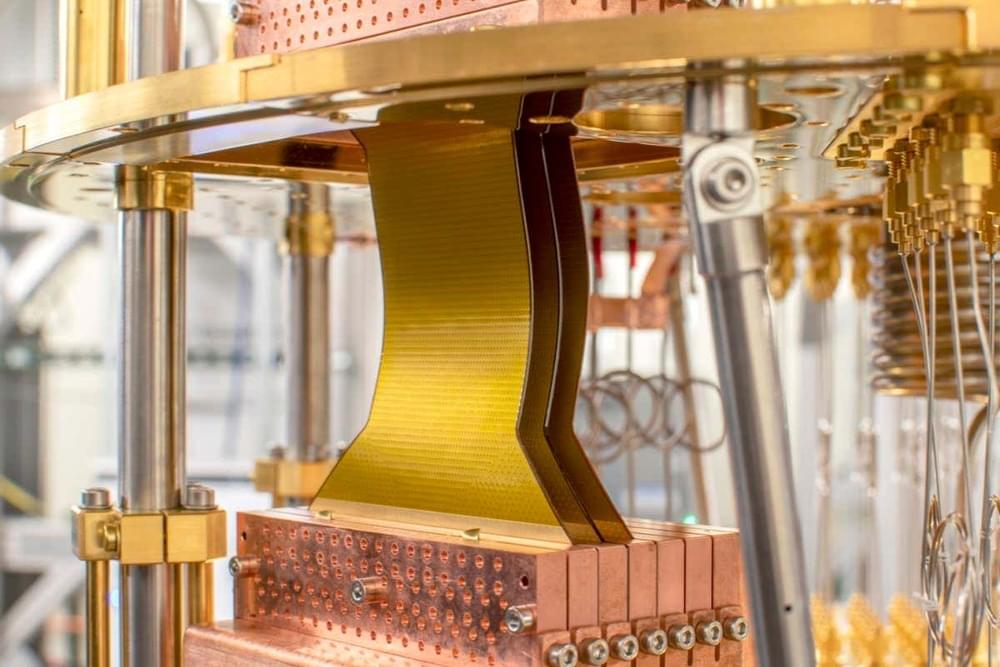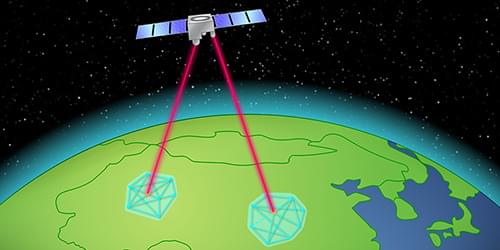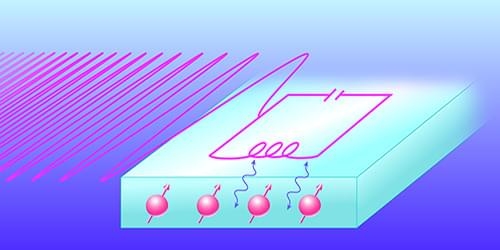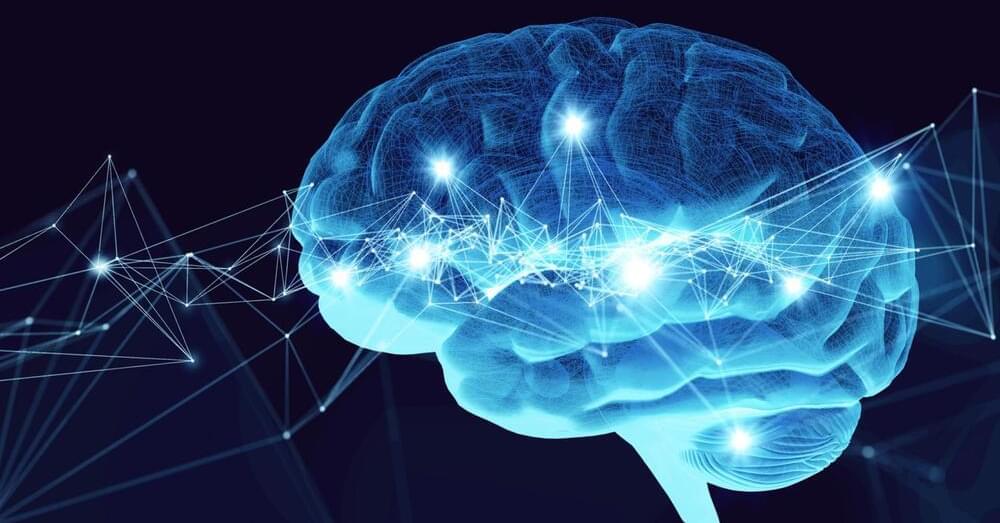IBM’s new quantum computer, Osprey, is more than triple the size of its previous record-breaking Eagle processor.



A series of demonstrations by Micius—a low-orbit satellite with quantum capabilities—lays the groundwork for a satellite-based quantum communication network.
Few things have captured the scientific imagination quite like the vastness of space and the promise of quantum technology. Micius—the Chinese Academy of Science’s quantum communications satellite launched in 2016—has connected these two inspiring domains, producing a string of exciting first demonstrations in quantum space communications. Reviewing the efforts leading up to the satellite launch and the major outcomes of the mission, Jian-Wei Pan and colleagues at the University of Science and Technology of China provide a perspective on what the future of quantum space communications may look like [1]. The success of this quantum-satellite mission proves the viability of several space-based quantum communications protocols, providing a solid foundation for future improvements that may lead to an Earth-spanning quantum communications network (Fig. 1).
Photons, the quanta of light, are wonderful carriers of quantum information because they are easy to manipulate and travel extremely fast. They can be created in a desired quantum state or as the output of some quantum sensor or quantum computer. Quantum entanglement between multiple photons—the nonclassical correlation between their quantum states—can be amazingly useful in quantum communications protocols such as quantum key distribution (QKD), a cryptography approach that can theoretically guarantee absolute information security. QKD schemes have been demonstrated on distances of a few hundreds of kilometers—sufficient to cover communications networks between cities. But increasing their range, eventually to the global scale, is a formidable challenge.

A new quantum random-access memory device reads and writes information using a chirped electromagnetic pulse and a superconducting resonator, making it significantly more hardware-efficient than previous devices.
Random-access memory (or RAM) is an integral part of a computer, acting as a short-term memory bank from which information can be quickly recalled. Applications on your phone or computer use RAM so that you can switch between tasks in the blink of an eye. Researchers working on building future quantum computers hope that such systems might one day operate with analogous quantum RAM elements, which they envision could speed up the execution of a quantum algorithm [1, 2] or increase the density of information storable in a quantum processor. Now James O’Sullivan of the London Centre for Nanotechnology and colleagues have taken an important step toward making quantum RAM a reality, demonstrating a hardware-efficient approach that uses chirped microwave pulses to store and retrieve quantum information in atomic spins [3].
Just like quantum computers, experimental demonstrations of quantum memory devices are in their early days. One leading chip-based platform for quantum computation uses circuits made from superconducting metals. In this system, the central processing is done with superconducting qubits, which send and receive information via microwave photons. At present, however, there exists no quantum memory device that can reliably store these photons for long times. Luckily, scientists have a few ideas.

Elon Musk doesn’t follow the same standards that most entrepreneurs do. He’s different, he likes to be different!
And when you’re different, and you’re not afraid to be, it’s okay to test a cigar (or should I say ‘joint’?) of tobacco mixed with marijuana, on Joe Rogan’s famous podcast. But if you look closely, Elon was just nice (polite) and followed Rogan’s elaborate script. Before trying it, Musk even asked him if it was legal.
Then all those facial expressions of Musk, which photojournalists love to catch, go viral as if he’s there promoting some soft drug or passing abroad that his office at Tesla (or SpaceX) is enveloped in a large cloud of smoke.
Quite the opposite. The expressions themselves spoke for themselves, as if to say, “This is nothing special, Joe. Why do you waste my time with these scenes”? Musk even claimed that weed is not good for productivity at all, but it has nothing against (as I do, by the way).

The magnetic material emulates learning that occurs in the brain during deep sleep.
Researchers have developed a material that can replicate the way the brain stores information. The material works by copying the synapses of neurons, allowing it to mimic learning that occurs during deep sleep. The team of researchers, from the Universitat Autònoma de Barcelona (UAB), built the magnetic material using a type of computation called neuromorphic computing.
Neuromorphic computing is a computing concept that uses artificial neurons to mimic behavior of the brain and the synaptic functions, or communication signals, of neurons.
Metamorworks/iStock.
The study was published in the journal Materials Horizons.
A paralyzed man who cannot speak or type was able to spell out over 1,000 words using a neuroprosthetic device that translates his brain waves into full sentences, US researchers said Tuesday.
“Anything is possible,” was one of the man’s favorite phrases to spell out, said the first author of a new study on the research, Sean Metzger of the University of California San Francisco (UCSF).
Last year the team of UCSF researchers showed that a brain implant called a brain-computer interface could translate 50 very common words when the man attempted to say them in full.
The James Webb Space Telescope has revolutionized the way we look at the universe in less.
than a year. Since its launch on December 25, 2021 multiple images captured by the largest.
telescope with potentially the highest infrared resolution and sensitivity have been going viral.
around the globe. James Webb is no doubt the most advanced telescope in human history. The.
telescope’s integrated science instrument module or ISIM framework provides it with electrical.
power, computing framework, cooling capability and structural stability. The ISIM also holds the.
four science instruments and the guide camera of the telescope. The infrared imager NIRICam.
serves as the Observatory’s wavefront sensor while the NIRISpec performs spectroscopy over.
the same wavelength range as that of NIRICam. The Mid-Infrared Instrument measures the mid.
to long infrared wavelengths and the Fine Guidance Center and Near Infrared Imager and.
Slitless Spectrograph is used to stabilize the line of sight during the science observations. So far.
the images and data received from the JWST are well worth the ten billion spent on building this.
miraculous invention. The first ever in ages from the telescope were revealed to the world on.
July 12, 2022 and experts believe these pictures from the largest and most powerful telescope.
in the world demonstrate Webb at its absolute best, fully prepared to further unravel the infrared universe. These included images of cosmic cliffs in the carina nebula, exoplanet WASP-06b.
southern ring nebula, Stephen’s quintet and the brilliant deep field view of the universe. But.
these were just the first batch, since then the James Webb Telescope has provided scientists.
with even more dazzling and awe-inspiring images of the cosmos. Some of these images have.
left astronomers and cosmologists quite confused. A flood of astronomical papers has been.
published since the revelation of these images and data from the JWST, a few of these papers.
have incited panic among the cosmologists. But what exactly is the reason behind this wave of.
panic? Well, it’s the assumption that the findings of James Webb Space Telescope are blatantly.
and repeatedly contradicting the Big Bang Theory. In order to better understand what’s going.
on, we first need to understand what the Big Bang exactly is.
Disclaimer Fair Use:
1. The videos have no negative impact on the original works.
2. The videos we make are used for educational purposes.
3. The videos are transformative in nature.
4. We use only the audio component and tiny pieces of video footage, only if it’s necessary.
DISCLAIMER:
Our channel is purely made for entertainment purposes, based on facts, rumors, and fiction.
Copyright Disclaimer under section 107 of the Copyright Act 1976, allowance is made for “fair use” for purposes such as criticism, comment, news reporting, teaching, scholarship, education, and research. Fair use is a use permitted by copyright statutes that might otherwise be infringing.

On these timescales, a blink of an eye — one-tenth of a second — seems like eternity.
Researchers from the University of New South Wales have now broken new ground in demonstrating that ‘spin qubits,’ which are the fundamental informational units of quantum computers, can store data for up to two milliseconds. The accomplishment is 100 times longer than prior benchmarks in the same quantum processor for what is known as “coherence time,” the amount of time qubits can be manipulated in increasingly complicated calculations.

This time I come to talk about a new concept in this Age of Artificial Intelligence and the already insipid world of Social Networks. Initially, quite a few years ago, I named it “Counterpart” (long before the TV series “Counterpart” and “Black Mirror”, or even the movie “Transcendence”).
It was the essence of the ETER9 Project that was taking shape in my head.
Over the years and also with the evolution of technologies — and of the human being himself —, the concept “Counterpart” has been getting better and, with each passing day, it makes more sense!
Imagine a purely digital receptacle with the basics inside, like that Intermediate Software (BIOS(1)) that computers have between the Hardware and the Operating System. That receptacle waits for you. One way or another, it waits patiently for you, as if waiting for a Soul to come alive in the ether of digital existence.

Even more daring, biology’s “mirror dimension” may be a springboard to engineer synthetic life forms that exist outside of nature, but are literal reflections of ourselves. To rephrase: building a mirror-image version of biology means rewriting the fundamental operating system of life.
Sound a bit too sci-fi? Let me explain. Similar to how our left hand can’t wear a right-hand glove, the building blocks of life—DNA, RNA, and proteins—are etched into specific 3D structures. Flip them around, as if reflected by a mirror, and they can no longer function inside the body. Scientists aren’t yet sure why nature picked just one shape out of two potential mirror images. But they’re ready to test it out.
A new study in Science made strides by reworking parts of the body’s protein-making machine into its mirror image. At the center is a structure called the ribosome, which intakes genetic code and translates it into amino acids—the Lego blocks for all proteins. The ribosome is an iconic cellular architecture, fused from two main molecular components: RNA and proteins.